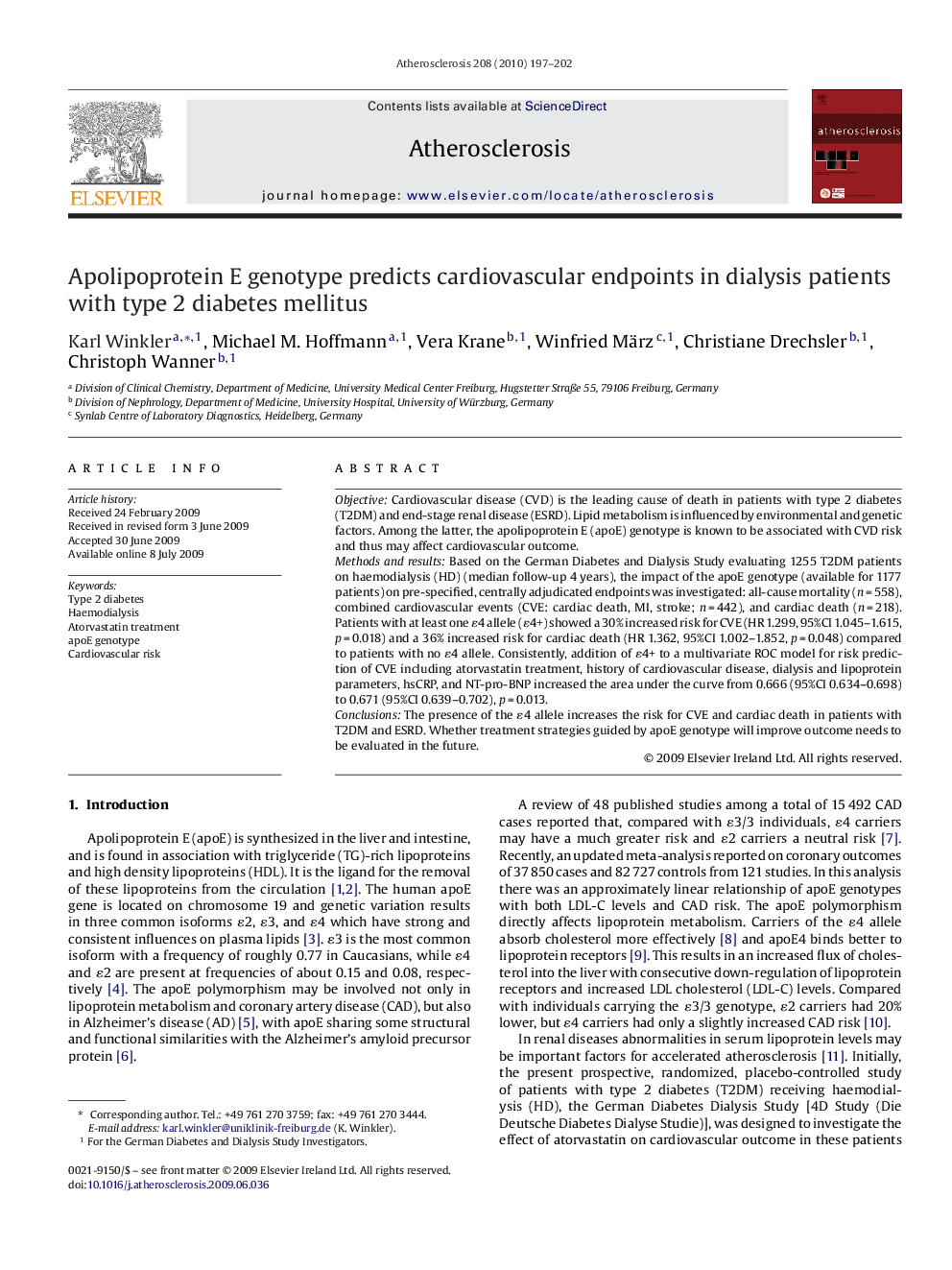| Article ID | Journal | Published Year | Pages | File Type |
|---|---|---|---|---|
| 2893682 | Atherosclerosis | 2010 | 6 Pages |
ObjectiveCardiovascular disease (CVD) is the leading cause of death in patients with type 2 diabetes (T2DM) and end-stage renal disease (ESRD). Lipid metabolism is influenced by environmental and genetic factors. Among the latter, the apolipoprotein E (apoE) genotype is known to be associated with CVD risk and thus may affect cardiovascular outcome.Methods and resultsBased on the German Diabetes and Dialysis Study evaluating 1255 T2DM patients on haemodialysis (HD) (median follow-up 4 years), the impact of the apoE genotype (available for 1177 patients) on pre-specified, centrally adjudicated endpoints was investigated: all-cause mortality (n = 558), combined cardiovascular events (CVE: cardiac death, MI, stroke; n = 442), and cardiac death (n = 218). Patients with at least one ɛ4 allele (ɛ4+) showed a 30% increased risk for CVE (HR 1.299, 95%CI 1.045–1.615, p = 0.018) and a 36% increased risk for cardiac death (HR 1.362, 95%CI 1.002–1.852, p = 0.048) compared to patients with no ɛ4 allele. Consistently, addition of ɛ4+ to a multivariate ROC model for risk prediction of CVE including atorvastatin treatment, history of cardiovascular disease, dialysis and lipoprotein parameters, hsCRP, and NT-pro-BNP increased the area under the curve from 0.666 (95%CI 0.634–0.698) to 0.671 (95%CI 0.639–0.702), p = 0.013.ConclusionsThe presence of the ɛ4 allele increases the risk for CVE and cardiac death in patients with T2DM and ESRD. Whether treatment strategies guided by apoE genotype will improve outcome needs to be evaluated in the future.
